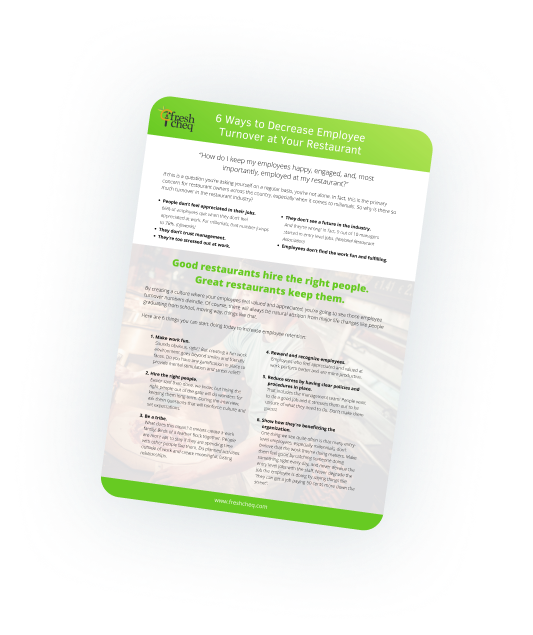Every good restaurant manager would love to offer flexible work schedules to their employees, right? However, the primary thing that often holds them back from doing so is the concern that they’re going to find themselves constantly understaffed and with uncovered shifts.
But it doesn’t have to be that way. Here are 5 ways that you can work to keep a flexible work schedule without the fear of uncovered shifts within your restaurants.
1. Hire to a Template
There's a delicate balance between having enough people on hand with offering your workers the flexibility they need. So how do you find that happy medium? Hire to a template!
When we say that, what we mean is you can’t schedule perfectly and you need some wiggle room. However, if you always know what positions need to be filled when it is a normal week, you’ll be able to build a predictable schedule. And then as you're building your schedule, use that template to fill the roles and responsibilities that need to get done with your employees requested hours in mind.
2. Build the Schedule as Early as Possible
Don’t be one of those managers who wait until the last minute. All you’re going to do is frustrate your employees and leave your restaurant vulnerable to being understaffed. Doing the schedule on a timely manner gives them the flexibility to plan their schedules outside of work and more time to swap shifts if needed. Building the schedule two weeks in advance is a realistic and sufficient timeline for both you and your team.
3. Allow Shift Changes
Make shift changes as easy as possible and don't micromanage the process. Trust your employees, treat them like adults, and they’ll reward you for it. Giving them the autonomy to manage this process on their own will make them feel better and it’ll also take the worrying about this off your plate.
4. Recognize the Shift Swappers
We all know the “true blue” people on our team who are always happy to move their shifts to help their team members. It’s important that those people don’t go unrecognized. This dynamic plays such an important and often underappreciated aspect of what it takes for a restaurant to run smoothly.
Don’t let these people get taken for granted by others, either. It can happen easily if you’re not careful.
5. Focus on Cross-Training
In order to have flexibility from a practical sense, you need to have people who can cover multiple roles. That means being proactive and letting people learn new skills. For example, if you’ve got both of your fry cooks requesting the same weekend off, wouldn’t you love to honor that? Having other team members who are trained in multiple skills gives you that ability.




